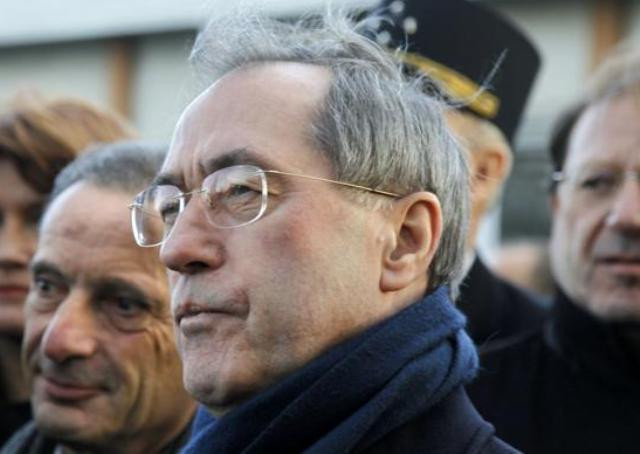France defends operation to catch gunman
France's most-wanted man was killed on Thursday after a 32-hour police siege.

Already under pressure over accusations that intelligence failures allowed Mohamed Merah to carry out three deadly attacks before being tracked down, police also face questions over the raid that ended in his death on Thursday.
Merah murdered three Jewish children, a trainee rabbi and three soldiers in three separate gun attacks between March 11 and March 19 in the southwestern city of Toulouse, shocking France in the build-up to presidential elections.
On Thursday France's most-wanted man tried to shoot his way out of his apartment after a 32-hour police siege that ended in his death.
There is fierce speculation about the 23-year-old's motives and if he had any accomplices. He had claimed to be an al Qaeda member who killed to avenge Palestinian children and punish France for sending troops to Afghanistan.
Interior Minister Claude Gueant told Saturday's Le Figaro that Merah was a "terrorist acting alone".
"It's the first time that France has been confronted with this particular type of action", he said, dismissing as "irresponsible" criticism of the police and in particular the operation that ended in his death.
There were hopes the gunman would be taken alive so that he could be put on trial. France is home to western Europe's largest Jewish and Muslim communities.
But police could not have used tear gas to put Merah to sleep as that was illegal under international conventions, Gueant said.
"The men who carried out this operation are very great professionals...," he added.
And in a swipe at the government's political rivals, he said: "The left is always saying that we don't do enough and, at the same time, refusing all the means that would increase the efficiency of the police."
Earlier, Prime Minister Francois Fillon said that security officials had known that Merah was a radical Islamist who had visited Afghanistan.
But there was no reason to suspect he was planning attacks, he said.
The intelligence services "did their job perfectly well. They identified Mohamed Merah when he made his trips," Fillon told French radio on Friday.
Intelligence agents "watched him long enough to come to the conclusion that there was no element, no indication, that this was a dangerous man who would one day pass from words to acts", added Fillon.
The head of France's DCRI domestic intelligence agency, Bernard Squarcini, told Le Monde newspaper there was little more that security services could have done to prevent Merah's atrocities.
Among those criticising the way the siege ended was a veteran police officer who said there was a lack of clear tactics by the elite RAID unit involved.
Christian Prouteau, who founded the GIGN, another elite unit drawn from the national police's rivals in the gendarmerie, said if they had used tear gas against Merah they would have had a chance of capturing him alive.
French police unions reacted sharply to Prouteau's comments.
But some Israeli security experts were even harsher in their criticism.
"The French security forces failed in their mission," former special forces officer Lior Lotan wrote in the top-selling Yediot Aharonot daily.
"Either there was a problem in the operational planning or they had to go into action before completing all their preparations," he added.
Former commando officer Uri Bar-Lev wrote in the rival Maariv newspaper: "This is not how a professional unit to combat terror behaves."
And Alec Ron, a former head of the Israel police commando unit, told Israeli public radio the operation appeared to be characterised by "utter confusion and unprofessionalism".
"It seems to me like an absolute disgrace," he added.
An Al-Qaeda-linked group, Jund al-Khilafah, claimed responsibility on jihadist websites for Merah's killings.
But intelligence agency chief Squarcini said Merah had not followed the usual path taken by Islamist extremists and was not part of any network.
"According to statements he made during the siege, he self-radicalised in prison, on his own, reading the Koran," he said.
While holed-up, Merah told police that he travelled to Pakistan in 2011, but had been trained by a single individual, not at one of the usual training centres, where spies might have reported his presence.
French agents had investigated Merah after his trip to Afghanistan, but had found none of the usual danger signs.
"No ideological activism, no visiting mosques," said Squarcini.
Police and prosecution have said that Merah's brother, Abdelkader Merah, is a radical Islamist and that traces of what could be an explosive material had been found in his car.



















COMMENTS
Comments are moderated and generally will be posted if they are on-topic and not abusive.
For more information, please see our Comments FAQ